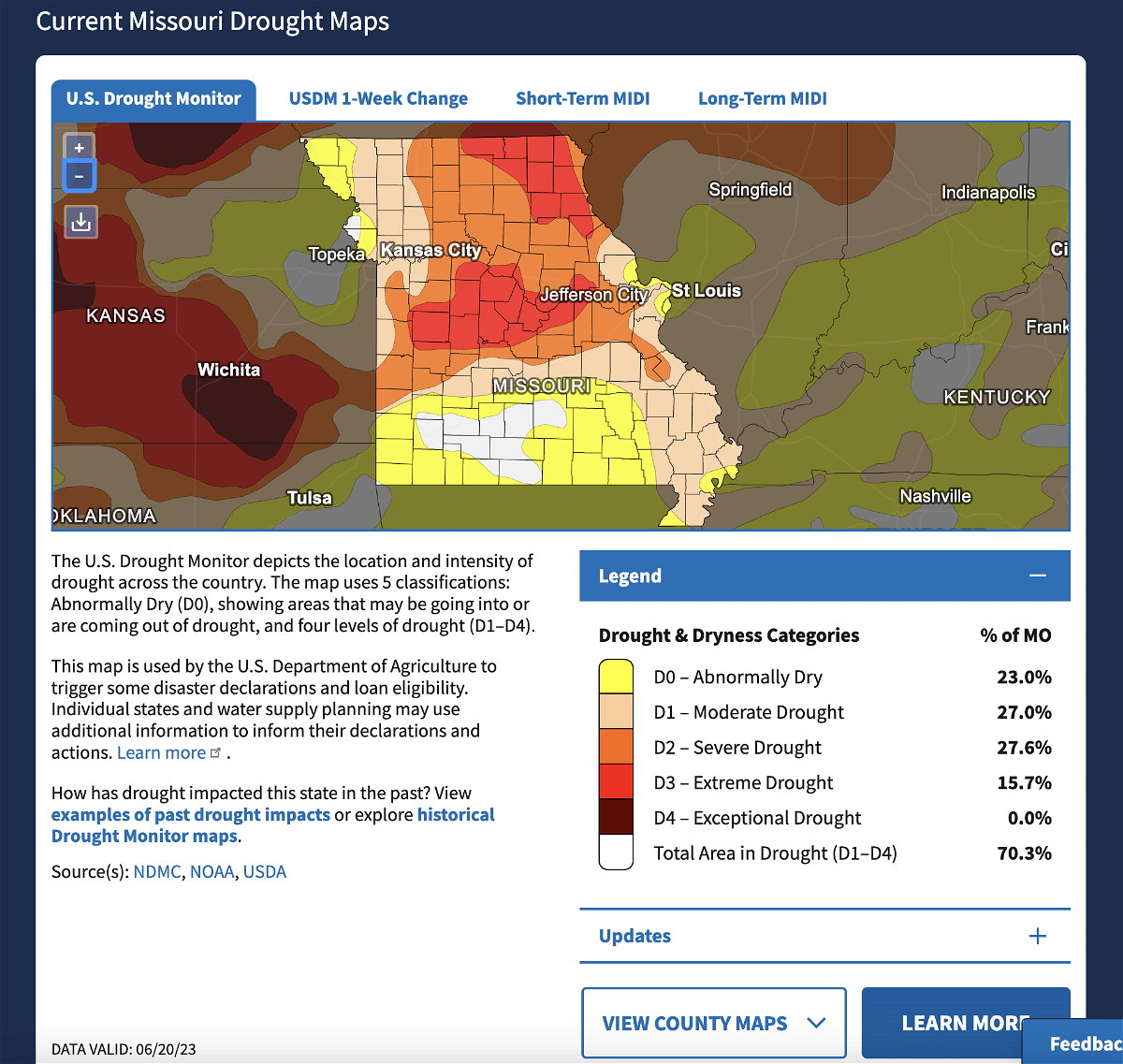Mid-Missouri farmers, ranchers experience rough summers under drought
COLUMBIA, Mo. (KMIZ)
No matter what they grow or raise, those in Missouri's agriculture industry are having a difficult summer with prolonged drought.
All of Mid-Missouri is experiencing some level of drought, according to the U.S. Drought Monitor, most of it in the moderate to extreme range.
According to the monitor, over 70% of the state is experiencing some level of drought. A new monitor comes out Thursday, but the state has gotten little rain and has seen rising temperatures since the last monitor.

The ABC 17 Stormtrack Weather Team issued a Weather Alert Day for Thursday for temperatures that will feel like the 100s. According to ABC 17 Stormtrack Meteorologist Nate Splater, scattered rain is possible Wednesday, but it won't have a big impact on the dry ground.
Last year, Missouri experienced another drought, but that one started later in the summer. Drought, any year, impacts farmers. Nick Van Schyndel with Hedge Holler Harvest said his pasture animals, like cattle, goats and pigs, see the most impact.
"The drought has mainly affected us on the cattle side of the operation with not having grass as well as hay for the cattle eat," Van Schyndel said. "We really strive to make sure that our animals get get all that pasture and all that goodness from the grass. So it's very important that we have the grass, but with the rain, it's really affecting us."
Van Schyndel said Hedge Holler Harvest implements some best practices that help mitigate the impacts of drought.
"Some of the practices we use, we like to use regenerative agriculture, which is in big part of rotating our cattle and not keeping them in one spot for a long period of time," Van Schyndel said. "So this prevents the cattle from destroying all grass and any matter that's there. So then the grass is able to absorb with little water like we got today."
Missouri has its share of wineries and water-intensive grape-growing operations. The state has over 130 wineries and 425 grape growers, according to Missouri Partnership. The wine industry has an economic impact of about $3.2 billion annually.
Dean Volenberg, PhD, with the University of Missouri's Grape and Wine Institute said the effects of drought on grapes can have impacts for years to come.
"As it stays dry, what happens is the fruit plants that are on there producing right now, actually they don't acclimate to the cold temperatures," Volenberg said. "So as we get into the fall, early winter season, they can't get down to where they're protected. So, they can easily freeze."
Growing grapes requires between half an inch and 1 inch of water per week, but the University of Missouri Climate Center shows Missouri is receiving about 2 inches less than the average rainfall per month.
Volenberg said the research vineyards of the university are seeing the effects, losing between 60 and 70% of its grape yield.
"Drought does carry over," Volenberg said. "So the drought really started late last summer early, and it's continual all the way up to this time here to the first days of summer, actually."
